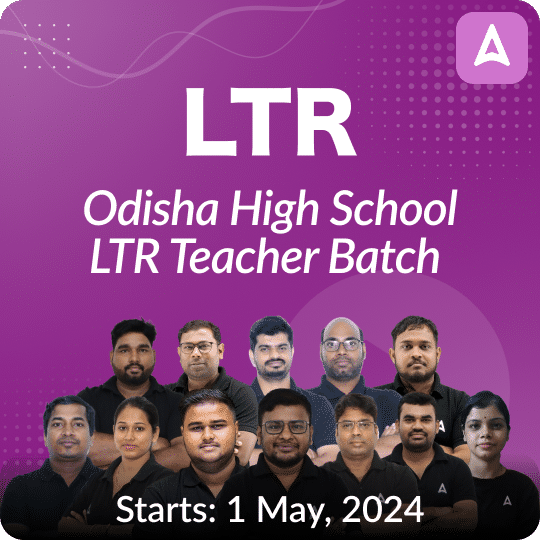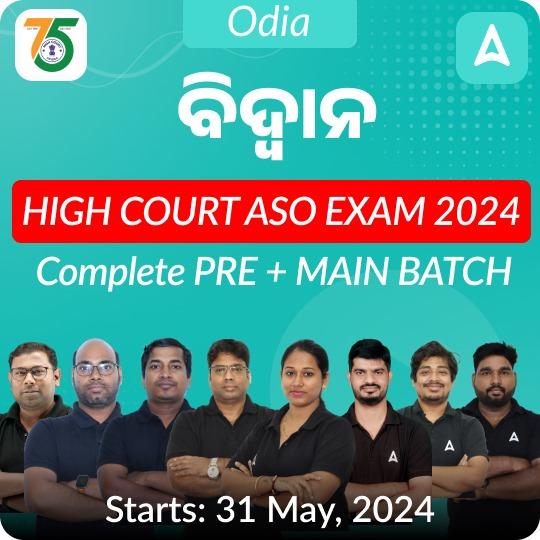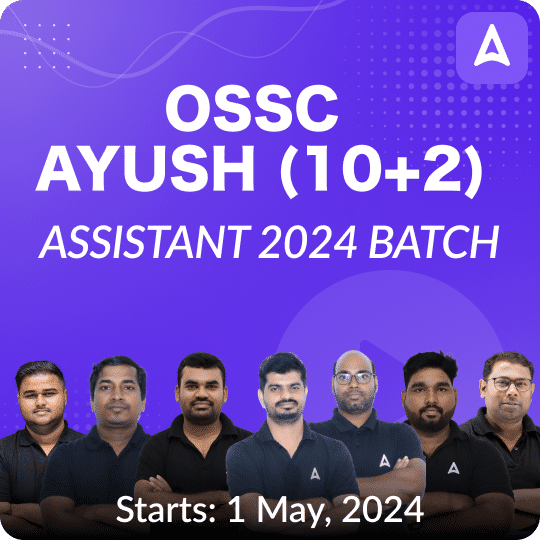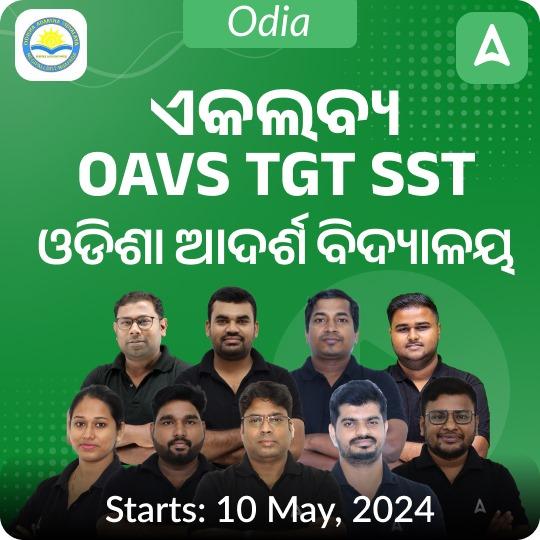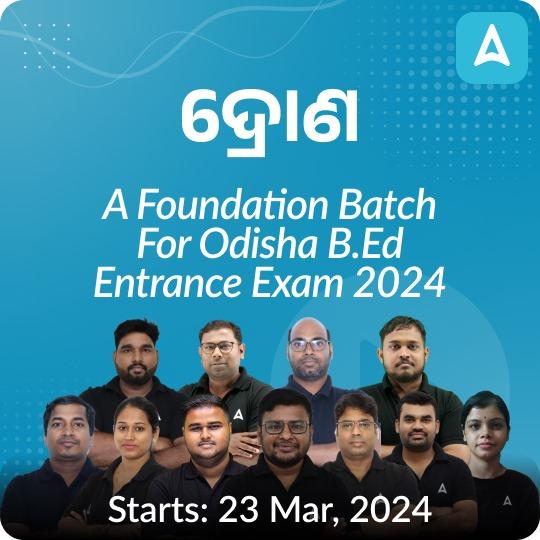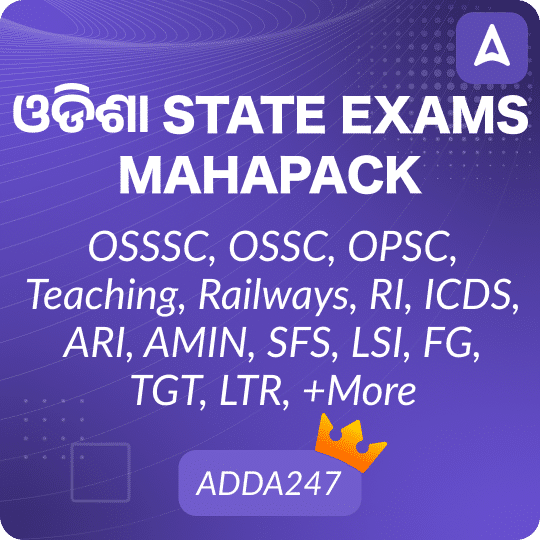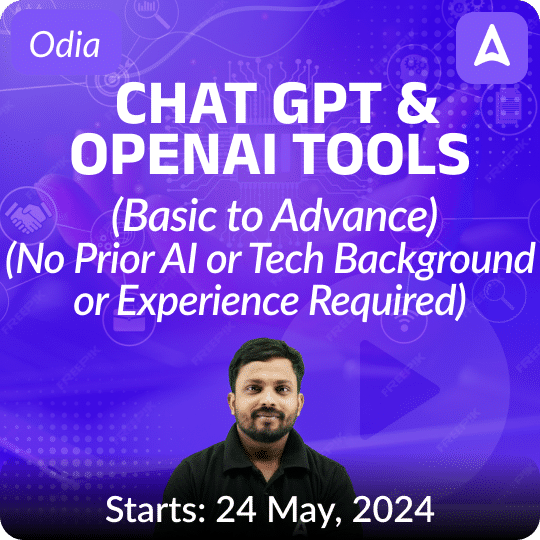As you are aware, in all competitive exams, the “Daily Current Affairs Section” holds significant importance in determining the cutoff scores. Therefore, if you excel in this section, you will have a better chance of achieving higher marks in these exams and securing a spot on the merit list.
Addapedia Odisha – Daily Current Affairs -18 December 2024
| National and International News |
| National Testing Agency (NTA) |
Why in news?
- A high-level committee of experts, led by the former Chairperson of the Indian Space Research Organisation (ISRO), K. Radhakrishnan, has suggested a restructuring of the National Testing Agency (NTA).
Key Points:
-
- The NTA was established in 2017 by the Ministry of Education as a premier, specialist, autonomous and self-sustained testing organization to conduct entrance examinations for admission/fellowship in higher educational institutions.
- Functions:
-
-
- Conducting entrance examinations for admission to higher educational institutions
- Creating a question bank using modern techniques
- Establishing a strong research and development culture
-
- Collaborating with international organizations like ETS (Educational Testing Services)
- Undertaking any other examination entrusted to it by the Ministries/Departments of Government of India/State Governments
|
| MGNREGA |
Why in news?
- A parliamentary panel has strongly advocated for raising the wages of workers under the Mahatma Gandhi National Rural Employment Guarantee Scheme (MGNREGS), stating that the current payment is not in line with the increasing cost of living.
Key Points:
- MGNREGA is the abbreviation for the Mahatma Gandhi National Rural Employment Guarantee Act 2005.
- It is a law passed by the Indian government in 2005 that guarantees the “right to work” to rural citizens of India.
- Under this, the government assures a minimum of 100 days of unskilled manual work to an adult member of an eligible rural household.
- The main objective of the MGNREGA is to provide employment to rural citizens and improve their economic conditions.
- Eligibility Criteria: For receiving the benefits of the MGNREGA Scheme, the following eligibility criteria are to be met by the applicant:
- Citizen of India
- 18 years of age at the time of application
- Rural Household
- Willing to do unskilled work
- Guaranteed Employment: The MGNREGA program guarantees 100 days of unskilled employment to all willing rural citizens, at the government-set minimum wage.
|
| Pradhan Mantri Annadata Aay SanraksHan Abhiyan (PM-AASHA) |
Why in news?
- The Government’s MSP policy for major agricultural commodities seeks to ensure remunerative prices to the growers for their produce with a view to encourage higher investments in farming and boost production and productivity.
- The government fixes MSP for 24 crops at 1.5 times the Cost of Production (CoP). Department of Agriculture & Farmers Welfare implements the umbrella scheme of Pradhan Mantri Annadata Aay SanraksHan Abhiyan” (PM-AASHA).
Key Points:
-
- It is an umbrella scheme aimed at ensuring remunerative prices to the farmers for their produce.
- PM AASHA has three components, and states can choose whichever one they wish to implement. The three components are
- Price Support Scheme (PSS):
-
-
- In PSS, physical procurement of pulses, oilseeds, and copra will be done by Central Nodal Agencies with the proactive role of state governments.
- In addition to the National Agricultural Cooperative Marketing Federation of India (NAFED), Food Corporation of India (FCI)will take up PSS operations in states/districts.
- The procurement expenditure and losses due to procurement will be borne by the Central Government as per norms.
- Price Deficiency Payment Scheme (PDPS):
-
-
- Under PDPS, it is proposed to cover all oilseeds for which MSP is notified.
- Direct payment of the difference between the MSP and the selling/model price will be made to pre-registered farmers selling his produce in the notified market yard through a transparent auction process.
- All payments will be done directly into the registered bank account of the farmer.
- Pilot of Private Procurement and Stockist Schemes (PPPS):
-
- In addition to PDPS, for oilseeds, states have the option to roll out PPSS on a pilot basis in selected districts/Agricultural Produce Market Committee (APMCs) of districts involving the participation of private stockists.
- This scheme will allow private players to participate in the procurement of crops.
|
| PM Kisan Maandhan Yojana |
Why in news?
- The Pradhan Mantri Kisan Maandhan Yojna (PM-KMY) has been providing social security to all land-holding Small and Marginal Farmers (SMFs) across the country..
Key Points:
- The scheme is voluntary and contributory for farmers in the entry age group of 18 to 40 years.
- A monthly pension of Rs. 3000/– will be provided to them upon attaining the age of 60 years.
- The farmers will have to make a monthly contribution of Rs.55 to Rs.200, depending on their age of entry, in the Pension Fund till they reach the retirement date i.e. the age of 60 years.
- The Central Government will also make an equal contribution of the same amount to the pension fund.
- The spouse is also eligible to get a separate pension of Rs.3000/- upon making separate contributions to the Fund.
- The Life Insurance Corporation of India (LIC) shall be the Pension Fund Manager and responsible for Pension pay-out.
|
| Pradhan Mantri Fasal Bima Yojana (PMFBY) |
Why in news?
- Crop Damage Evaluation System for the Pradhan Mantri Fasal Bima Yojana (PMFBY).
- Pradhan Mantri Fasal Bima Yojana (PMFBY) envisages use of improved technology including satellite imagery, drones, Unmanned Aerial Vehicle (UAV) and remote sensing for various applications such as crop area estimation and yield disputes and also promote the use of remote sensing and other related technology for Crop Cutting Experiments (CCEs) planning, yield estimation, loss assessment, assessment of prevented sowing and clustering of districts.
Key Points:
-
- A scheme of the Ministry of Agriculture & Farmers Welfare, PMFBY is an insurance service for farmers for their yields, launched in 2016.
- The new Crop Insurance Scheme is in line with the One Nation One Scheme theme.
- The PMFBY replaced the previous two schemes: the National Agricultural Insurance Scheme (NAIS) and the Modified NAIS.
- Objectives:
-
- To provide insurance coverage and financial support to the farmers in the event of failure of any of the notified crops as a result of natural calamities, pests and diseases.
- To stabilise the income of farmers to ensure their continuance in farming.
- To encourage farmers to adopt innovative and modern agricultural practices.
- To ensure flow of credit to the agriculture sector.
|
Odisha Specific News
| ‘Utkarsh Odisha’ |
Context:
- The Odisha government has launched the official website for the Utkarsh Odisha: Make in Odisha Conclave 2025, scheduled for January 28 and 29, 2025.
- It provides a one-stop platform for the stakeholders, industry leaders, industry associations, and partners to register for various sessions.
About:
-
- “Utkarsh Odisha” to be held January 2025, is a flagship global investors’ summit of Odisha.
- It is the renamed version of ‘Make in Odisha Conclave’.
- This event aims to attract significant investments from domestic and international investors, showcasing the state’s potential for growth and development.
- Theme: ‘Odisha will be the growth engine of the development journey of the country in the next 25 years’.
- The conclave is on the lines of prime minister of India’s vision for the state, which aspires to attract domestic and foreign investments and contribute further towards the agenda of Atmanirbhar Bharat.
Note: Utkarsh Odisha is the fourth edition of the state’s flagship global investors’ summit. |
| Green Odisha Initiative |
Context:
- Odisha has partnered with the Council on Energy, Environment, and Water (CEEW) to launch the Green Odisha Initiative, aimed at fostering green economic growth.
- This collaboration was formalized through a Memorandum of Understanding (MoU) signed by the Planning and Convergence Department.
- The initiative is expected to make Odisha a leader in sustainable development, aligning environmental conservation with economic progress.
About:
- The Green Odisha Initiative is a comprehensive program launched by the Government of Odisha to promote sustainable development and environmental conservation.
- It aims to create a greener and cleaner Odisha by addressing various environmental challenges, including climate change, deforestation, and pollution.
Key objectives:
- Afforestation.
- Renewable Energy
- Waste Management
- Water Conservation
- Biodiversity Conservation
|
| Odisha to set up a new cybercrime wing |
Context:
- The Odisha government is planning to set up a new cybercrime wing within the state police to meet the new age challenges.
Key Points:
- Aim is to establish cyber police stations in all the districts.
- Also, a cybercrime branch will be created in the state for high-level investigation and monitoring of cyber crimes with a senior officer in charge.
- It is in view that modernisation of the police force, reforms in the police system, infrastructure for investigation and trained human resources are the need of the hour.
|
| Bonded Labour System (Abolition) Act, 1976. |
Context:
- The Odisha government is seeking reports from 11 district collectors regarding the aid provided to rescued bonded labourers.
- This initiative follows the rescue of 155 bonded labourers in the 2023-24 period, as highlighted by Labour Minister Shobha Karandlaje.
- The government aims to ensure that these individuals receive the necessary financial assistance and rehabilitation support as mandated by existing laws, including the Bonded Labour System (Abolition) Act, 1976.
- The focus is on improving transparency and accountability in the rehabilitation process for these vulnerable workers.
Note:
- In the past five years, more than 2,300 bonded labourers have been rescued from different parts of India.
About:
- Although thousands of bonded workers are rescued at frequent intervals from other states, the assistance they are entitled to under the Bonded Labour System (Abolition) Act, 1976 eludes them.
- Before 2016, the rehabilitation amount for a rescued bonded labourer with a release certificate was ₹20,000 (initial cash of ₹1000 by the destination State and the remaining ₹19,000 by the source State).
- After 2017, under the central sector scheme for rehabilitation of bonded labourers, the assistance money for men is ₹1 lakh, and women ₹2 lakh.
- Those who faced extreme abuse or are disabled get ₹3 lakh.
- They are provided immediate cash assistance of ₹30,000 at the destination, while the remaining sum is paid by source states.
Bonded Labour System (Abolition) Act, 1976:
- The Bonded Labour System (Abolition) Act, 1976 was enacted in India to eliminate the practice of bonded labour, which involved individuals working to repay debts under exploitative conditions.
Key Provisions
- Abolition of Bonded Labour: The Act abolished the bonded labour system, freeing all bonded labourers from their obligations as of October 25, 197514.
- Nullification of Agreements: Any agreements or customs requiring bonded labour were rendered void24.
- Extinguishment of Debt: The liability to repay bonded debts was extinguished, preventing creditors from enforcing repayment.
- Protection Measures: Freed labourers could not be evicted from their homes and had their properties released from mortgages45.
Enforcement
- District Magistrates were given authority to implement the Act, supported by vigilance committees at various administrative levels.
- The Act represented a significant step towards protecting the rights and dignity of vulnerable workers in India.
|
| Copyright © by Adda247
All rights are reserved. No part of this document may be reproduced, stored in a retrieval system or transmitted in any form or by any means, electronic, mechanical, photocopying, recording or otherwise, without prior permission of Adda247. |








